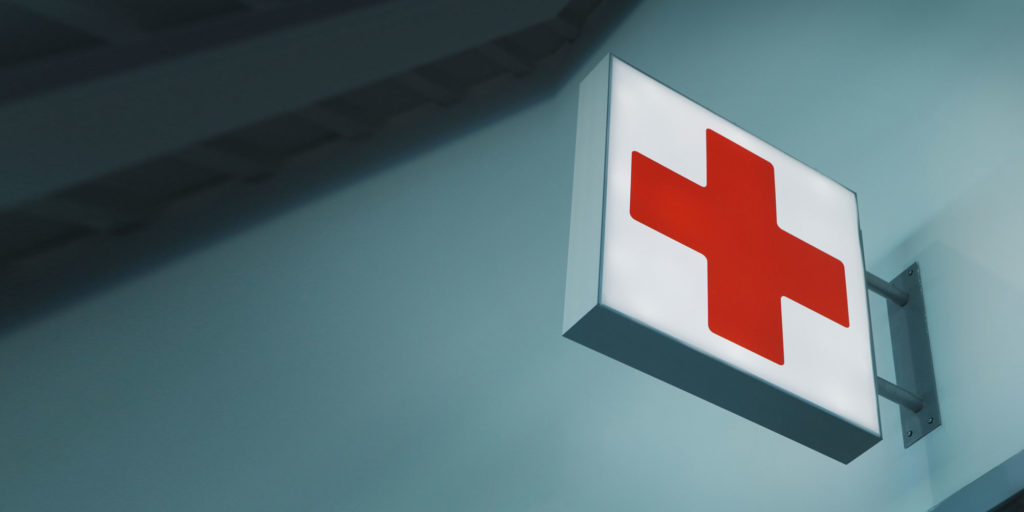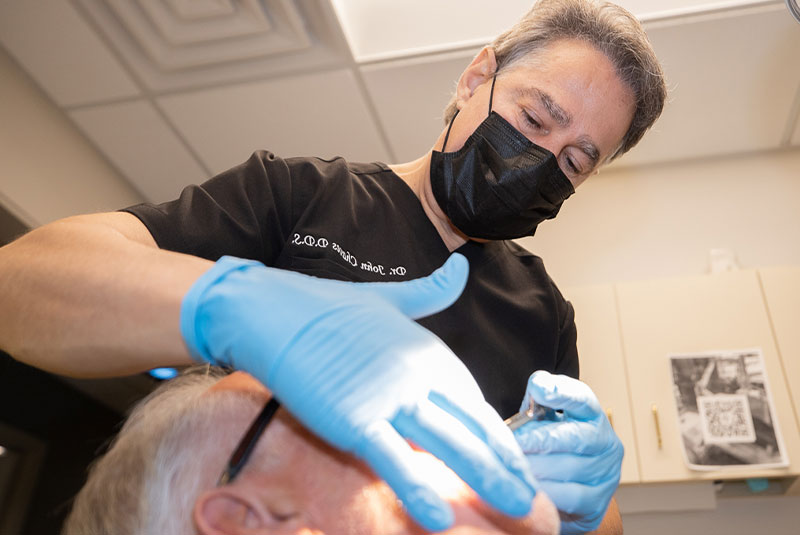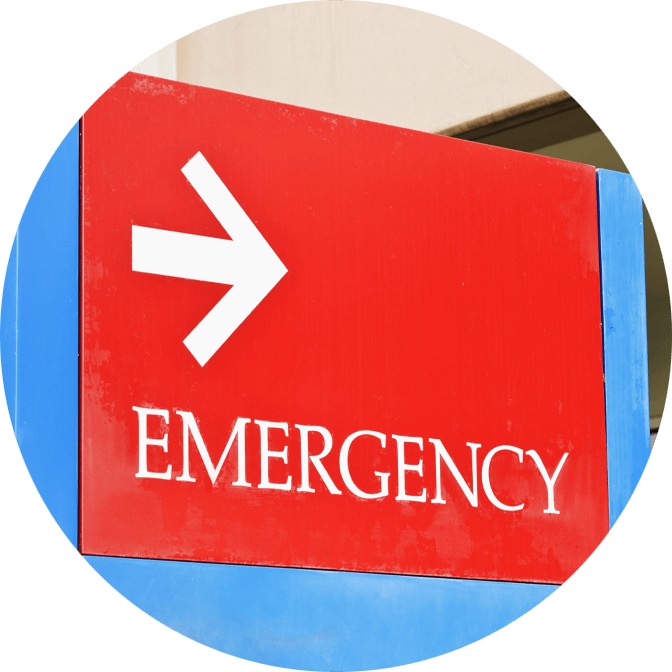

Experiencing a dental emergency can be a daunting and uncomfortable situation. Whether it’s a sudden toothache, a knocked-out tooth, or a broken tooth, knowing what steps to take can make a significant difference in managing the situation effectively.
Our emergency dentist in Woodland Hills wants patients to be aware of the steps to take in certain circumstances of dental emergencies. By being prepared and informed, you can confidently navigate dental emergencies and ensure the best possible outcome for your oral well-being.
Call 818-491-7294 to schedule your visit to our emergency dental office in Los Angeles.
If you require an emergency dentist near you in Woodland Hills, CA, our team is here to promptly relieve your pain and restore your oral health.

When a dental emergency strikes, it’s best to know what steps to take to minimize pain, reduce swelling, and prevent further damage. Stay calm and assess the situation to determine the severity of the emergency, and take the following action:
Determining whether or not you should visit the emergency room for a dental emergency will depend on various factors.
Visit the emergency room if you’re experiencing any of these common types of dental emergencies:

We offer several types of sedation to alleviate dental anxiety and ensure your ultimate comfort.
Dental trauma refers to injuries that affect the teeth, gums, or mouth due to accidents, sports-related incidents, or other traumatic events. Proper first-aid emergency care for dental injuries can preserve the affected teeth and reduce potential complications.
If you’ve undergone dental trauma, do the following:
Dealing with dental pain can be distressing, especially when immediate dental care isn’t readily available. Managing dental pain at home is possible with over-the-counter pain relief options, natural remedies, and self-care techniques. It’s important to note that home remedies are temporary solutions, and seeking professional dental care is crucial for long-term resolution.
Some remedies to try at home include:

Dental phobia is a common fear or anxiety related to dental procedures and visits to the dentist’s office. Unfortunately, dental emergencies can exacerbate dental phobia, making it challenging for individuals to seek prompt treatment. Overcoming dental anxiety is essential for maintaining good oral health and seeking timely treatment during dental emergencies.
This can be achieved by:
Traveling abroad can be an exciting experience, but encountering a dental emergency in a foreign country can be overwhelming. It’s crucial to be prepared and informed before embarking on international travel:
Yes, stress and anxiety can contribute to dental pain or exacerbate conditions such as teeth grinding or temporomandibular joint disorder (TMJ). Managing stress through relaxation techniques or seeking professional support can help alleviate dental pain associated with these factors and help prevent dental emergencies.
If you have a severe toothache, schedule an appointment with your dentist as soon as possible. In the meantime, rinse your mouth with warm saltwater, use dental floss to remove any food debris, and avoid placing aspirin or other pain relievers directly on the tooth. Over-the-counter pain relievers may provide temporary relief, but dental evaluation and treatment are necessary to address the underlying cause of the toothache.
Here are some of the most common dental emergencies:
Dental emergencies can happen unexpectedly, causing discomfort and anxiety. By staying calm, evaluating the situation, and seeking professional dental care, you can effectively manage dental emergencies and minimize potential complications.
Call our Woodland Hills dental office at 818-491-7294 to schedule an appointment with Dr. Chaves as soon as possible. Prioritize your oral well-being and proactively address dental emergencies for a healthy, pain-free smile.
I understand the information disclosed in this form may be subject to re-disclosure and may no longer be protected by HIPAA privacy regulations and the HITECH Act.
